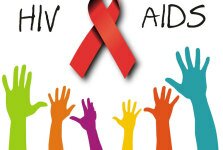Washington: The Ebola hot zone is finally – and officially – going cold.
Guinea, where the deadliest Ebola outbreak in history began two years ago, was declared Ebola-free on Tuesday.
“Today the World Health Organisation declares the end of Ebola virus transmission in the Republic of Guinea,” the UN agency said in a statement.
Forty-two days have passed since the impoverished west African country’s last confirmed Ebola patient tested negative for a second time. Now, WHO said, Guinea “enters a 90-day period of heightened surveillance to ensure that any new cases are identified quickly before they can spread to other people”.

Mohamed Belhocine, centre, a representative of the World Health Organisation, at a press briefing in Conakry, Guinea, on Tuesday. Photo: AP
The deadly virus has killed 2536 people in Guinea since the outbreak began in December 2013 in Gueckedou, a southern town near the borders of Liberia and Sierra Leone.
According to the WHO, another 8764 people were killed by Ebola in those two countries during the outbreak, which was accompanied by a worldwide epidemic of fear and anxiety.
Sierra Leone was declared Ebola-free in November. Liberia has been declared free of the virus twice, but is about midway through a third 42-day countdown following a recent cluster of cases. The country may be declared Ebola-free on January 14, according to the WHO.
“This is the first time that all three countries – Guinea, Liberia and Sierra Leone – have stopped the original chains of transmission that were responsible for starting this devastating outbreak two years ago,” Matshidiso Moeti, WHO’s regional director for Africa, said in a statement. “I commend the governments, communities and partners for their determination in confronting this epidemic to get to this milestone.”
In particular, the WHO said, the end of Ebola in Guinea “marks an important milestone” in the outbreak, because the original chain of transmission began there, in Gueckedou, near the end of 2013 – “and drove the outbreak which spread to neighbouring Liberia and Sierra Leone and, ultimately, by land and air travel to seven other countries”.
In total, more than 28,600 people worldwide were stricken with Ebola during the outbreak, according to the WHO.
More than 11,300 of them died.
Last year, researchers reported that patient zero of the outbreak was likely a two-year-old Guinean child, Emile Ouamouno, who lived in the village of Meliandou.
In Conakry, the capital of Guinea, news of the Ebola-free declaration was greeted “with mixed emotions given the deaths and the damage the virus did to the economy and the country’s health and education sectors”, Reuters reported.
“Several of my family are dead,” Fanta Oulen Camara, who works for Doctors Without Borders, told the news agency. “This situation has shown us how much we must fight for those who are survivors.”
Ms Camara, 26, was also stricken with the disease, in March 2014.
“It’s the best year-end present that God could give to Guinea, and the best news that Guineans could hope for,” Alama Kambou Dore, another Ebola survivor, told AFP. “From 2013 to 2015, Guineans suffered, they lived and survived, they endured, they were stigmatised, rejected, even humiliated because of this disease, which leaped out of nowhere.”
But a top WHO official cautioned on Tuesday that “the coming months will be absolutely critical” in Ebola’s old hot zone.
“This is the period when the countries need to be sure that they are fully prepared to prevent, detect and respond to any new cases,” Bruce Aylward, who heads the WHO’s Ebola response, said in a statement. “The time-limited persistence of virus in survivors which may give rise to new Ebola flares in 2016 makes it imperative that partners continue to support these countries. WHO will maintain surveillance and outbreak response teams in the three countries through 2016.”




